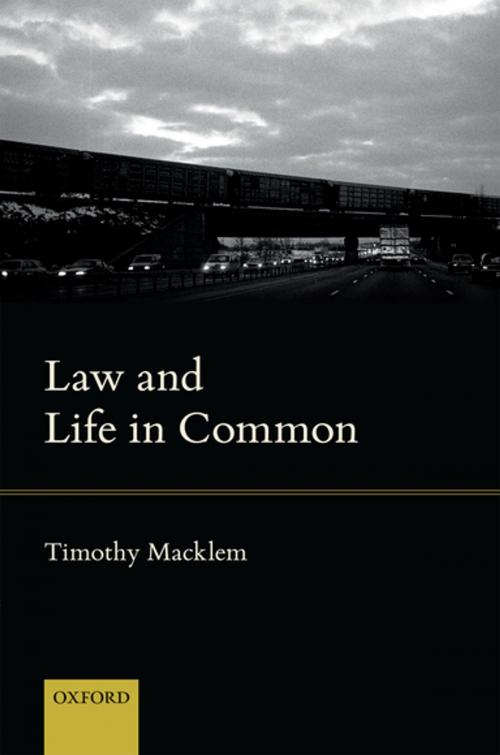Law and Life in Common
Nonfiction, Reference & Language, Law, Jurisprudence, Religion & Spirituality, Philosophy| Author: | Timothy Macklem | ISBN: | 9780191054686 |
| Publisher: | OUP Oxford | Publication: | March 12, 2015 |
| Imprint: | OUP Oxford | Language: | English |
| Author: | Timothy Macklem |
| ISBN: | 9780191054686 |
| Publisher: | OUP Oxford |
| Publication: | March 12, 2015 |
| Imprint: | OUP Oxford |
| Language: | English |
We live in a moral world in which reasons come in different kinds as well as different weights, so that the claims of one reason upon us are often different from but no greater than the claims of some other reason. Yet law, in its self-presentation and in theoretical accounts of it, proceeds as if its rational pull was conclusive, as if there were no sensible alternative to compliance with its terms. In itself that should not be surprising: each of us often acts as if the reasons that animate us were morally determinative. Why should law operate in any other way? Yet we know that in fact reasons are usually not determinative of action, and while pretence to the contrary may not much matter in individual settings, it matters very much in the setting of the law. The ability of the law to build a life in common, of whatever kind, is dependent on its ability to function, most of the time at least, as if its claims were pre-eminent, rather than undefeated at best. If law is to succeed in its basic project of binding people to its aims, it must buttress its limited rational claims with arational appeals. It needs partners, not only in the prudential considerations that force gives rise to, but also in the beguilement that shared imaginings make possible. This book is an exploration of those partnerships, in principle and in their most important details.
We live in a moral world in which reasons come in different kinds as well as different weights, so that the claims of one reason upon us are often different from but no greater than the claims of some other reason. Yet law, in its self-presentation and in theoretical accounts of it, proceeds as if its rational pull was conclusive, as if there were no sensible alternative to compliance with its terms. In itself that should not be surprising: each of us often acts as if the reasons that animate us were morally determinative. Why should law operate in any other way? Yet we know that in fact reasons are usually not determinative of action, and while pretence to the contrary may not much matter in individual settings, it matters very much in the setting of the law. The ability of the law to build a life in common, of whatever kind, is dependent on its ability to function, most of the time at least, as if its claims were pre-eminent, rather than undefeated at best. If law is to succeed in its basic project of binding people to its aims, it must buttress its limited rational claims with arational appeals. It needs partners, not only in the prudential considerations that force gives rise to, but also in the beguilement that shared imaginings make possible. This book is an exploration of those partnerships, in principle and in their most important details.















